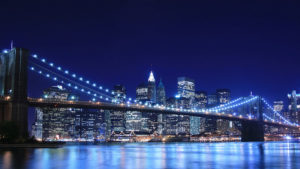It’s vitally important for your safety that gas stoves function properly at all times.
The reason the ban was put in place is the emissions from gas stoves can be harmful to the health. This is the reason that gas stoves must be operated in a well-ventilated room. This has always been true and should be familiar news to anyone using a gas stove.
Gas Stoves and Indoor Air Quality
When gas stoves are used, they release gases like nitrogen dioxide (NO₂), carbon monoxide (CO), and formaldehyde (HCHO) into the air—substances that aren’t exactly friendly to your lungs. These emissions can be especially tough on anyone with asthma, emphysema, or other respiratory conditions. In fact, according to the Rocky Mountain Institute, homes with gas stoves have been shown to contain 50–400% higher concentrations of nitrogen dioxide and other harmful gases compared to homes with electric stoves.
So, while you absolutely can repair or replace your gas stove, it’s smart to be mindful of ventilation and indoor air quality. Properly venting your kitchen is not just good practice—it’s a key part of keeping your home safe and healthy.
Gas Stove Safety Tips
To keep your home safe and your gas stove running efficiently, keep these essential precautions and maintenance tips in mind:
- Check for gas leaks: Regularly inspect your stove and gas lines for any signs of leaks. The telltale “rotten egg” smell is a warning—never ignore it.
- Ensure proper ventilation: Always use your stove in a well-ventilated kitchen. Proper ventilation minimizes harmful emissions and keeps air quality safe.
- Inspect burners: Make sure each burner is functioning properly. If a burner isn’t lighting or the flame is weak, it may be time for a cleaning or repair.
- Maintain clean burners: Prevent residue buildup by cleaning burners regularly. Accumulated grease and debris can affect performance and even become a fire hazard.
- Avoid overheating: Don’t let burners operate unattended or become excessively hot, as this can cause damage or increase risk of fire.
- Check gas line installation: Gas lines should always be installed and maintained by a licensed professional to ensure safety and compliance with local codes.
- Keep a fire extinguisher handy: Every kitchen should have a fire extinguisher within easy reach, just in case.
Gas Stove Repair & Gas Stove Installation in NYC
The most common problems with gas stoves are problems with the burners. If a burner is not lighting, or you see only limited flame when the burner is lit, it is time to have the stove repaired. Many burner issues can be remedied by a thorough cleaning and potentially replacement of the ignition components.
If at any time you smell gas from your gas stove, make sure there are no open flames in the area. Shut off the stove and call your [emergency plumber](http://borismechanical.com) for immediate repairs.
If you’re planning on replacing the gas stove, have your local licensed master plumber perform the gas line installation. This is required by local codes to keep the neighborhood safe.
What Safety Hazards Are Associated with Gas Stove-Tops in Apartments?
While dramatic gas stove explosions are the stuff of television dramas, in real life, these incidents are quite rare. However, using any appliance with an open flame inside your home does carry important safety considerations. The key to staying safe is being proactive and aware of a few basic precautions.
Here’s what you should keep in mind to minimize risks and keep your kitchen running smoothly:
- Watch for Gas Leaks: If you ever smell a strong odor of gas (think sulfur or rotten eggs), that’s your cue to turn off the stove immediately, ventilate the area by opening windows, and leave the apartment before calling for help.
- Maintain Good Ventilation: Always operate your gas stove in a well-ventilated area. This helps prevent the buildup of potentially harmful fumes and ensures your indoor air stays healthy.
- Regular Maintenance: Make sure burners ignite easily and produce a steady blue flame. If you notice yellow flames or difficulty lighting a burner, it’s time for a checkup—and possibly cleaning or part replacement.
- Check Gas Connections: Over time, connections can become loose or worn. Have a licensed professional inspect gas lines periodically to ensure everything is tight and leak-free.
- Keep Things Clean: Spilled food or grease can clog burners or ignite, leading to minor fires or uneven heating. Wipe down your stove regularly and avoid allowing residue to build up.
- Fire Readiness: Keep a fire extinguisher on hand in the kitchen—and know how to use it. It’s a simple step that can make a big difference.
Taking these measures seriously will help you enjoy your gas stove’s benefits while keeping your home, and everyone in it, safe.

